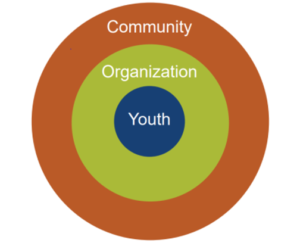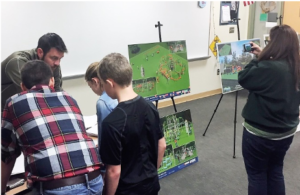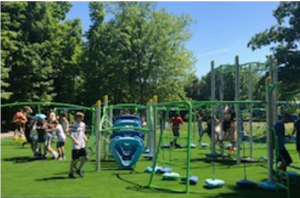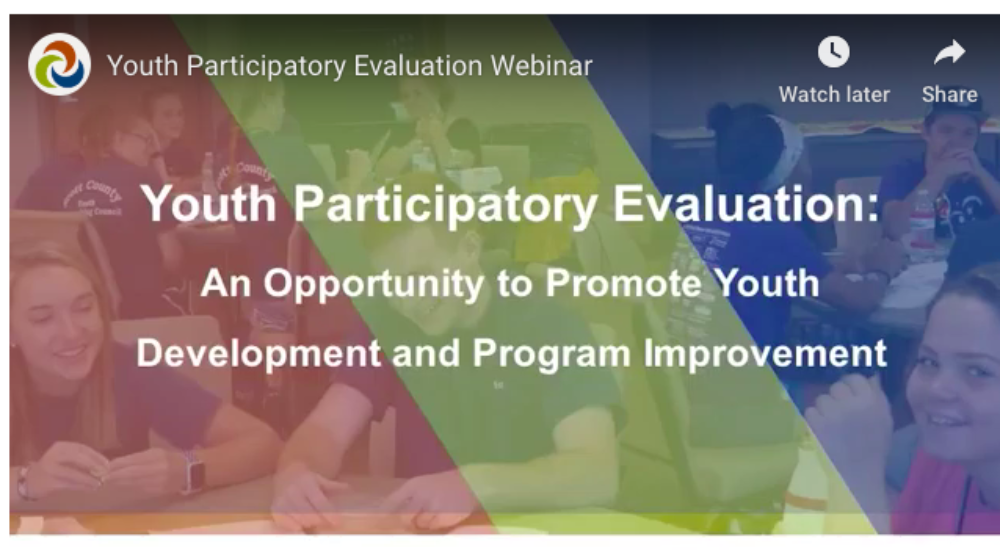In 2019, Indiana Philanthropy Alliance (IPA) hosted a free, two-part webinar series designed to support next-gen leadership and giving.
The first webinar, “Youth Participatory Evaluation: An Opportunity to Promote Youth Development and Program Improvement,” explored concepts of Youth Participatory Evaluation (YPE) with Dr. Lori Palen of RTI International’s Center on Social Determinants, Risk Behaviors, and Prevention Science. Sharing Indiana examples of youth evaluative processes that included youth were Maranda Fishback of the Legacy Foundation and Chris McConnell of the City of Westfield, Indiana, Parks & Recreation.
What is Youth Participatory Evaluation?
 Dr. Palen defines YPE as follows:
Dr. Palen defines YPE as follows:
Youth Participatory Evaluation engages young people in a process to evaluate programs, organizations, or systems that impact (or are supposed to impact) their lives.
Through the YPE process, benefits are gained by the community, organization, and youth themselves:
Youth
- Evaluation skills
- Voice
- Self-discovery
- Mentoring
Organization
- Improved insights
- Increased capacity
- Staffing pipeline
- Fresh voices
Community
- Positive experiences with youth
- Citizen pipeline
Necessary Conditions for YPE to Take Place
According to Dr. Palen, the following must take place for YPE to be feasible:
- Organizational and Community Readiness: The values and resources must be available for both the evaluation and the youth partnership.
- The Right Team: Adults must buy into youth empowerment; youth must relate to the target population.
- Clear Roles: From initiating, recruiting and selecting, training and supporting, and advocating, each member must have a clearly-defined role in the process.
- Training and Support: Youth and adults need to be trained on evaluation skills and working across generations, supported with ongoing training, coaching, and meetings.
- Sustaining Youth Involvement: Offer experiences that are motivating to youth, such as travel and skill-building, and logistical support, such as providing transportation and meals.
Involving Youth at Each Evaluation Stage
Youth should be included in evaluation planning, recruitment of participants, data collection, data analysis and interpretation, and reporting. Youth often lend the ability to use creative methods for each step of the process, and examples of some of these tools you can use can be found in the resource section of the webinar recording.
Examples of Implementation
Maranda Fishback, community engagement coordinator at Legacy Foundation in Lake County, Indiana, shared how their foundation is actively including youth in the evaluation process. On the Table, a national learning network, brings together people ages 12 and up to share a meal or snack and talk about ways to improve their community. These conversations take place in small groups at varying locations including restaurants, classrooms, libraries, etc. The conversation ends with participants taking a survey where they can share topics and ideas discussed. In 2018, approximately 800 youth participated, including six school corporations, church youth groups, Boys and Girls Clubs, and the Lake County Parks Department. The foundation supplies all materials needed to host a conversation but does not actively facilitate or host the conversation. Instead, discussion is left to these small groups of friends, neighbors, or peers to spur more natural conversation. Legacy Foundation gained valuable data from these conversations, which are compiled into a report and pushed back out into the community.
In Westfield, Indiana, the Parks Department knew that a local park playground was in need of refurbishment and plans were underway to begin the revitalization. Chris McConnell, parks & recreation superintendent for the City of Westfield, submitted an RFP to companies to submit bids for the project. Knowing that a public meeting would be a required part of the process, and citing low turnout at previous public meetings for similar projects, McConnell reached out to the middle school (which sits adjacent to the park) for input. The student government met and reviewed the top three RFP bids, and then returned to their homeroom constituents to vote on their preferred playground design. The city moved forward with the selected plans and students were included throughout the construction process, which culminated at a ribbon cutting. The City has experienced a very positive response to this process; the creation of a beautiful new playground, and the added benefit of students becoming active participants in the governmental process and gaining a sense of pride in their community.


A full recording of this webinar, along with the resources shared, can be found on the IPA website.
For breakfast, I had Greek yogurt with red raspberries and decaf coffee.
Author: @jmarkland
